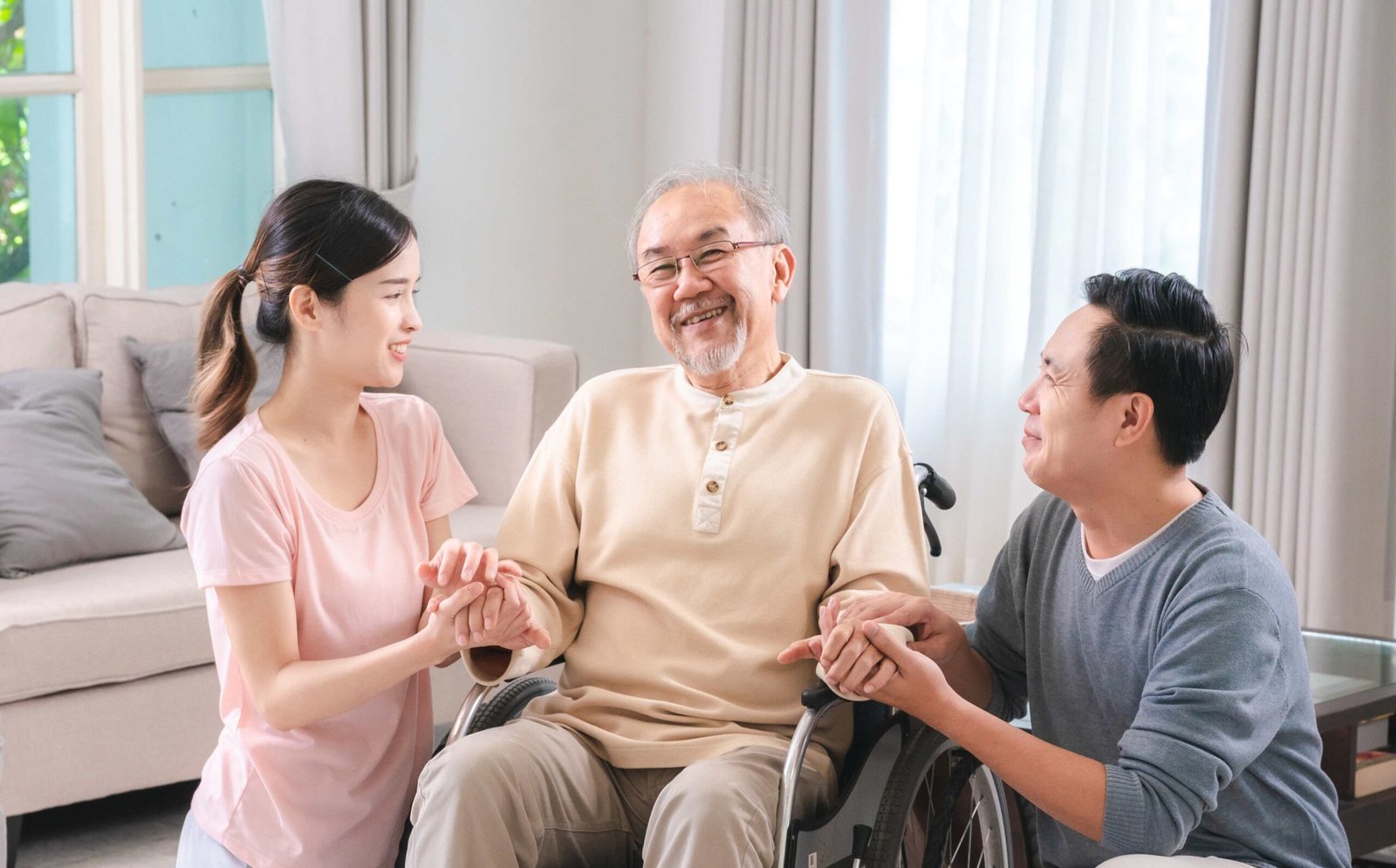Understanding Palliative Care
Principles of Palliative Care
At Serenity Hospice Care, we adhere to the fundamental principles of palliative care to ensure high-quality support for our patients and their families. The principles of palliative care involve a holistic approach that addresses the complete range of patient needs, including medical, psychological, social, cultural, and spiritual care. We believe in the following core principles:
- Patient-Centered Care: Focus on the needs and preferences of the individual, ensuring personalized care.
- Holistic Approach: Integrate diverse aspects of care, encompassing medical, psychological, social, cultural, and spiritual support.
- Interdisciplinary Teamwork: Employ a team-based approach involving various healthcare professionals to provide comprehensive care.
- Communication and Compassion: Prioritize effective communication and compassionate interactions with patients and families.
- Accessibility and Equity: Ensure care is accessible to everyone, regardless of illness or social background.
By adhering to these principles, we aim to provide effective and compassionate hospice care and in-home hospice care services.
Benefits of Palliative Care
Palliative care offers numerous benefits designed to help individuals manage serious illnesses like heart disease, cancer, or chronic respiratory conditions. Here are the primary benefits of palliative care:
- Symptom Relief: Provides relief from symptoms such as pain, fatigue, nausea, and difficulty breathing, enhancing patient comfort.
- Emotional and Psychological Support: Offers support to patients and caregivers, helping them cope with the emotional impact of a serious illness.
- Improved Quality of Life: Aims to improve the overall quality of life by addressing the physical, emotional, and social aspects of the patient’s condition. For more about improving quality of life, see our article on quality of life in hospice care.
- Support for Caregivers: Provides caregivers with resources, guidance, and respite to manage their responsibilities more effectively.
- Better Decision Making: Empowers individuals to make informed decisions about their care plans, ensuring their preferences are respected (Cleveland Clinic).
| Benefit | Description |
|---|---|
| Symptom Relief | Relief from pain, fatigue, nausea, and other distressing symptoms. |
| Emotional Support | Help for patients and caregivers in managing the emotional and psychological impact of illness. |
| Improved Quality | Enhanced overall quality of life by addressing a wide range of physical and emotional needs. |
| Caregiver Support | Resources and guidance for caregivers, promoting effective management of caregiving responsibilities. |
| Better Decisions | Empowerment to make informed care decisions, respecting patient preferences. |
To learn more about the specific benefits of our services, please visit our article on benefits of hospice care.
By understanding and leveraging these principles and benefits, Serenity Hospice Care strives to provide outstanding palliative care services that enhance the lives of our patients and their families. Our commitment to compassionate and comprehensive care sets us apart as a trusted provider for all hospice care and in-home hospice care needs.
Palliative Care vs. Hospice Care
Key Differences
At Serenity Hospice Care, we understand the necessity of distinguishing between palliative care and hospice care to ensure that individuals and their families receive the most appropriate care tailored to their unique situations. Although palliative care and hospice care share similarities in providing compassionate care for individuals with serious illnesses, they serve different purposes and are applicable at distinct stages of an illness.
Palliative Care
Palliative care focuses on relieving symptoms and reducing the stress of an incurable medical condition at any stage of the illness. It aims to improve the overall quality of life for both the patient and their family. This type of care can be provided alongside curative treatments and is beneficial to people of any age. Palliative care addresses not only physical symptoms but also emotional, spiritual, and social aspects, thereby offering a holistic approach (Cleveland Clinic).
Hospice Care
Hospice care, on the other hand, is specifically designed for individuals who are nearing the end of life. Typically, hospice care begins when curative treatments are no longer opted for, and the focus shifts entirely to comfort care. Hospice care provides comprehensive support that includes pain management, emotional support, and assistance with daily activities, with the primary goal of ensuring the highest possible quality of life during the final months. For more detailed insights, you can explore our hospice care services.
| Care Type | Stage of Illness | Focus | Can be Combined with Curative Treatment |
|---|---|---|---|
| Palliative Care | Any stage | Symptom relief, stress reduction, holistic care | Yes |
| Hospice Care | End of life | Comfort, quality of life, emotional support | No |
Figures sourced from Cleveland Clinic.
Applicability at Different Stages
Palliative care and hospice care are applicable at different stages of a serious illness, addressing various needs based on the progression of the condition.
Early to Mid Stages: Palliative Care
Palliative care is appropriate from the moment a serious illness is diagnosed and can continue through all stages of the disease. Whether a patient is undergoing aggressive treatment or managing chronic symptoms, palliative care provides essential support. By addressing symptoms such as pain, nausea, breathlessness, and psychological distress, palliative care enhances the patient’s quality of life and provides them with the strength to pursue treatments (Center to Advance Palliative Care).
For patients dealing with complex conditions like cancer, heart failure, chronic obstructive pulmonary disease (COPD), kidney disease, Alzheimer’s, Parkinson’s, and ALS, palliative care offers an additional layer of support to manage the multifaceted challenges presented by these illnesses (Center to Advance Palliative Care). Families can also benefit from emotional support provided by palliative care teams.
Late Stages: Hospice Care
When a patient’s illness progresses to the point where curative treatments are no longer effective or chosen, hospice care becomes the appropriate choice. At this stage, the primary focus shifts from curative measures to comfort care, which prioritizes the patient’s quality of life during their remaining time. Hospice care provides comprehensive support, including medical care, pain management, emotional and spiritual support, and assistance with daily activities. For more information about our in-home hospice care services, please visit our dedicated page.
Hospice care is not limited to the patient alone; it extends to the family as well, offering vital support through difficult times. Families can explore the benefits of hospice care and how it can significantly enhance the quality of life during the final stages of an illness.
For a thorough comparison and to understand why you should choose Serenity Hospice Care for all of your hospice care needs, visit our article on why choose Serenity Hospice Care.
Elements of Effective Palliative Care
When you choose Serenity Hospice Care for your hospice care, in-home hospice care, or palliative care needs, you are opting for a service that prioritizes a comprehensive approach to patient well-being. Here, we outline two key elements that make our palliative care both effective and compassionate.
Holistic Care Approach
Our palliative care program is built on a holistic care approach. This means addressing not just the physical symptoms of illness, but also the psychological, social, and spiritual needs of our patients. Our multidisciplinary palliative care team includes doctors, nurses, social workers, chaplains, and other specialists who collaborate to provide an extra layer of support.
- Physical Care: Our team focuses on providing relief from symptoms and stress related to serious illnesses such as cancer, heart failure, COPD, kidney disease, Alzheimer’s, and ALS. This involves managing pain, nausea, breathlessness, and fatigue to improve the patient’s quality of life.
- Psychological and Emotional Support: Emotional strains are a significant part of serious illnesses. Our palliative care team helps patients manage anxiety, depression, and other psychological issues. Learn more about our emotional support in hospice care.
- Social and Family Support: We recognize the role of family and social relationships in a patient’s well-being. Our social workers assist with coordinating care, providing resources, and supporting family members.
- Spiritual Care: Chaplains and spiritual advisors address the existential questions and spiritual needs that may arise for the patient and their family.
For more details on how our holistic approach can benefit you or your loved one, visit our page on quality of life in hospice care.
Advance Care Planning
Advance care planning is another crucial element of effective palliative care at Serenity Hospice Care. This involves preparing for future healthcare needs and making sure that patients’ preferences for treatment are understood and respected.
- Personalized Care Plan: Our palliative care team takes the time to understand each patient’s goals and treatment preferences. This personalized approach ensures that care is aligned with what the patient values most.
- Communication: We facilitate discussions between patients, their families, and their healthcare providers. This ensures that everyone is aware of the patient’s wishes, providing more control over care and improving the quality of life (Center to Advance Palliative Care).
- Documentation: We assist in legally documenting advance directives and other necessary paperwork. This documentation guides medical decision-making in situations where the patient may not be able to communicate their wishes.
By incorporating advance care planning, we ensure a structured yet flexible approach that adapts to the evolving needs and preferences of our patients. This is part of our commitment to offer compassionate and competent care. For more insights, visit our section on hospice care for families.
Choosing Serenity Hospice Care means entrusting your care to a team dedicated to holistic and planned approaches, ensuring a supportive and respectful journey through serious illness.







